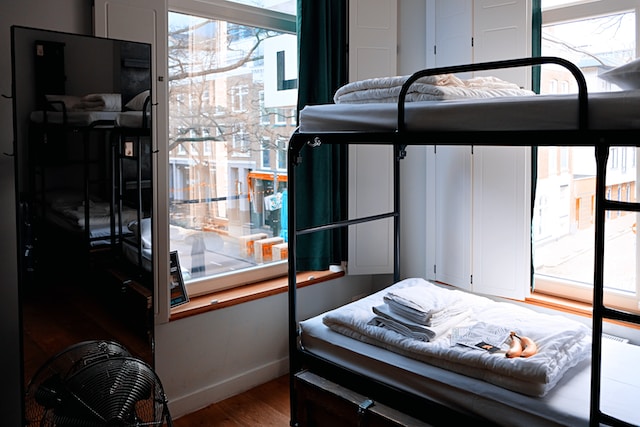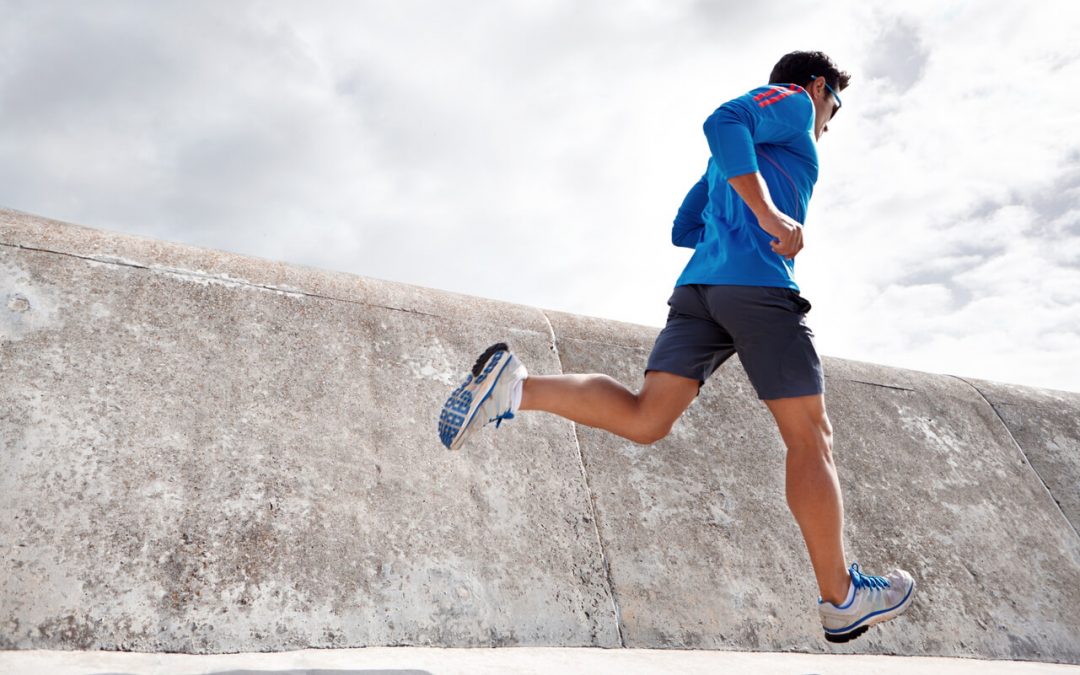
Budgeting Tips for College Students
Entering college is an exciting time filled with new experiences and challenges. However, it can also be a time of stress for many students. Aside from their studies, many college students also have trouble budgeting their finances. But managing a budget isn’t something you can’t fix with a snap of your fingers. Here are some money budgeting tips for college students to help you build financial discipline in college.
Create a Budget You Can Stick to
Creating a budget helps you manage your money and gives you a clear picture of where your finances stand. Start by outlining your sources of income (e.g., part-time jobs, allowances, or scholarships). Next, list your monthly expenses (e.g., tuition, housing, food, etc.). Be realistic about your spending habits and allocate funds accordingly. If you need help structuring your budget, the 50-30-20 rule is a great place to start — allocate 50% of your income for needs, 30% for wants, and 20% for savings.
Track Your Expenses Rigorously
Maintain a detailed record of your daily expenses, no matter how small. Some great tools for tracking your money include using a notebook, a budgeting app, or even a simple spreadsheet. By rigorously tracking your expenses, you can identify areas where you can cut back and save money. Having awareness about your spending habits is essential to learning the right way to compromise your budget without sacrificing essential expenses.
Find a Free or Cheap Way to Destress
College life can be stressful and finding ways to unwind without breaking the bank is essential. Instead of splurging on expensive entertainment, explore free or low-cost activities on and around your campus. Attend student organization events, take advantage of student discounts, or enjoy the natural beauty of your surroundings.
Don’t Give in to Peer Pressure
It’s common to feel pressure to keep up with your peers, especially in a college environment. However, succumbing to peer pressure can lead to unnecessary spending, financial strain, and stress. Resisting peer pressure is difficult but putting your finances first can help preserve your mental health and ensure you can make it through school. Try to suggest low-cost or free activities you can all enjoy. Who knows? Maybe your friends are also dealing with internal pressure to keep up.
Get a Part-Time Job if You Can
Consider getting a part-time job to supplement your income if your schedule allows. Many colleges offer on-campus employment opportunities that cater to students’ schedules. You can also try looking for a part-time job where you can work remotely, so you won’t have to spend extra on transportation and other costs. A part-time job not only provides additional income but also valuable work experience. Just keep in mind not to let your job eat up all your time and disrupt you from focusing on academics.
In Conclusion
Navigating college life on a budget requires careful planning and disciplined financial habits. By following these smart money-saving tips for college students on a budget, you can ensure that your college experience is financially rewarding. Developing these budgeting skills will serve you well during your college years and lay the foundation for a lifetime of financial success.

The Importance of Sleep for College Students
Sleep has been to college students what pen and paper are to writers –– an essential tool of the trade.
Ancient philosophers like Aristotle and Pythagoras stressed the importance of sleep for physical, mental, and emotional well-being. Although we may no longer have to worry about being attacked by wild beasts in our sleep, modern-day college students face challenges that make a good night’s rest just as crucial.
From cramming for exams to late-night partying, there’s no shortage of things that can disrupt sleep schedules. But why is sleep so important, and how can students ensure they get enough of it?
In this blog post, we’ll explore the science behind sleep and its vital role in college life. Grab your favorite blanket and cozy up for a dive into the world of sleep.
Enhanced Cognitive Function
The importance of sleep for college students is best understood in the context of mental function. Sleep is an essential part of our daily routine that helps us stay alert and focused throughout the day.
Studies have found that sleep deprivation can lead to:
- Decreased levels of concentration
- Poorer memory recall
- Slower reaction times
All of these impairments ultimately impede academic performance — not something college students typically strive for!
Improved Mental Health and Stress Management
Anyone who has pulled an all-nighter knows how draining it can be. Not only does sleep deprivation affect cognitive performance, but it also affects mental health and stress levels.
Sleep helps us cope with the daily pressures of student life by allowing the body to rest and reset.
Strengthened Immune System
Health is wealth, and you’ll gain much of it with good sleep. Sleep and rest play a vital role in regulating the immune system, allowing the body to fight off colds and other illnesses more quickly and efficiently.
Lack of sleep for college students makes them more susceptible to sickness and other health issues, so it’s important to prioritize sleep when times get tough.
Heightened Academic Performance
Getting the recommended hours of sleep for college students — around eight hours — is crucial to success in the classroom.
When you’re well-rested, your body is better equipped to take on any task that comes your way, including studying for exams or writing papers. Plus, it’s much easier to stay focused and productive when giving your brain the rest it deserves.
Balanced Emotional Well-being
Harvard links sleep and mood, and it’s easy to see why. When you don’t get the recommended amount of sleep for college students, your mood can take a hit.
You may feel irritable and frustrated, which affects relationships with friends, family members, and classmates.
Getting enough sleep each night can ensure that your emotions stay balanced and healthy.
Achieve Better Sleep and Grades Today
How do you ensure better sleep? Here are some sleep tips for college students:
- Aim for eight hours of sleep every night
- Set a consistent sleep schedule
- Avoid late-night snacks or caffeine
- Create a comfortable sleep environment
With just a few small steps, you can get on the path to better sleep and better grades. Get some well-deserved rest!

Corona’s Future at UT By Alec Hinch
How COVID-19 Has Impacted The Quarters on Campus
With the word of a COVID-19 vaccine in the world currently, everyone is asking the same question- when will life return to normal? Here at The Quarters, we have experienced drastic change and adaptation in the face of the pandemic although the more important focus is on the students and their experience with COVID-19 and the future of student life at UT.
Vaccines
Currently there are two vaccines authorized for emergency use in the United States. Both of these vaccines have begun to roll out to medical personnel and critical at-risk patients specifically vulnerable to the COVID-19 virus. The vaccine is being administered for the individuals discussed earlier but that can’t stop everyone from asking, “when is my turn?” The answer basically revolves around so many ever changing variables. The current prediction is that the vaccine will reach the general population sometime by the middle of 2021 but the big question is what will life be like after the vaccine and, more importantly, will it resemble what it was before?
The Lasting Effects of COVID-19
The lasting effects of the current worldwide pandemic will be felt for years after the population is vaccinated but it will go down in the events of history as the time the modern world stopped functioning. The modern world has not, on this scale, faced such a threat and change of events so drastic as those of the COVID-19 pandemic. The cities that don’t sleep, slept, and super power countries ground to a halt as the words quarantine were enforced. The simple fact is that the lasting effects of COVID will be prevalent for years, but the act of change and vaccination will lead to a return to normalcy- albeit slower than the change to chaos.

History of the University of Texas at Austin
The City of Austin
Austin is known for many things — fantastic barbecue, South by Southwest, the capital of Texas and the live music capital of the world, Zilker Park, the Barton Springs Pool, the Pennybacker Bridge, the LBJ Presidential Library, and much more. Throughout this great city and state, another noteworthy claim to fame includes universities with a rich background of academic excellence, especially when it comes to the history of the University of Texas at Austin.
The Foundation of UT
The foundation of UT can be traced back to 1876 when Article 10, Section 7 of the Texas Constitution was passed: “The legislature shall as soon as practicable establish, organize and provide for the maintenance, support and direction of a University of the first class, to be located by a vote of the people of this State, and styled, ‘The University of Texas,’ for the promotion of literature, and the arts and sciences…”
By September 1883, UT held its opening ceremony in an unfinished building where the Tower is now located. To continue strengthening the cornerstone of academic excellence, in 1905, the Latin words “Disciplina, Praesidium, Civitatis” were adopted as UT’s motto, which was inspired by a quote from Mirabeau B. Lamar, former president of the Republic of Texas — “A cultivated mind is the guardian genius of democracy.”
Present Day UT
Fast forward to the present day, and impressive numbers reflect how UT has grown to become an outstanding educational beacon for students around the world:
- More than 50,000 students are enrolled, which ranks in the top 40 universities in the world.
- Students have the option to choose from nearly 400 degree programs with a plethora of options for undergraduate and graduate study.
- 400 study abroad programs are available in nearly 80 countries.
- UT consists of 431 acres with 17 libraries, seven museums, and 15 career centers.
- More than 3,000 teaching faculty are employed at the university.
- Alumni encompass more than 482,000 people worldwide.
- 140 countries are represented by international student enrollment at UT.
And here’s a fun fact about UT: The Harry Ransom Center located on campus is home to one of 20 complete copies of the Gutenberg Bible in the world. Printed on the Gutenberg press in the early 1450s in Germany, this was the first book to be mass-produced from movable metal type on the revolutionary printing press invented by the bible’s namesake, Johannes Guttenberg.
Famous UT Alumni
UT also has a stand-out list of notable names who have called the Austin campus home, including, athletes, singers, celebrities, etc. — Matthew McConaughey, Farrah Fawcett, Emmanuel Acho, Wes Anderson, Stacey Abrams, Janis Joplin, and Walter Cronkite, just to name a few.

Running Away From Quarantine by Ben Guajardo
My Background
I played every sport as a child: basketball, football, soccer, track and field, and my favorite, baseball. If there is one thing these sports taught me, it is that I am not built for running. So I thought. Cardio was my worst enemy. I made tons of excuses: I’m too large, I’m not graceful when I run, I’m better suited for weight lifting. For the past few years, I have worked out under these assumptions. For the past few years, I have avoided running as if it were the plague. When COVID-19 changed the world earlier this spring, everybody’s lives were turned upside down. Online classes, being stuck indoors, minimal social interaction, financial troubles, and general concern for the health of ourselves and our loved ones are just some of the problems that many of us have faced.
How Quarantine Motived Me to Run
2 weeks into quarantine, with school work piling up, frustrations mounting, and pent up energy about to burst out of me, I realized that I needed to find a way to workout. But the gyms were closed. Then it dawned on me. The only way I was going to stay in shape was through running. I dreaded it. Living in South Texas on the coast, 95 degrees and 90% humidity is considered a cool day.
The first few weeks were brutal. My college-student diet betrayed me and I was having to drink water like never before. The runs were boring. Not having the stamina to run very far meant I had to stay close to home. It made no sense to run 2 or 3 miles out only to have to walk back. Another problem that amused my family was trying to decide what surface to run on. After neglecting proper running for years, my knee began to ache after about 2 weeks. My parents began to hit me with the “just wait until you’re our age” comments. While I found that running on grass was gentler on the knee, I also found that it led to twisted ankles from hidden holes. It was hopeless. I wasn’t built to be a runner. I was ready to give up. One day, after forcing myself out the front door for a 2-mile run, something happened. When I crossed the 2-mile mark, I felt good. Really good, actually. I put my head down and decided to keep running. I got creative with the route. I did loops around cul-de-sacs, weaved in and out of new streets, and even went for a run along the neighborhood ditch. I didn’t check my time or the distance until I got home and when I did, I had just crossed the 4-mile mark. A personal best.
Why I love Running Now
My runs suddenly became interesting. Knowing what I was capable of now, I pushed myself physically and mentally. I knew that I couldn’t settle for just a 1-mile run and call it a good day. I began to venture out. I ran across a crosswalk for the first time to get to an entirely different neighborhood. I ran to go visit friends at their houses (socially distancing outside, of course). Running through my own neighborhood day after day is boring. Exploring other neighborhoods, visiting friends, and running along nature trails? That’s fun. I suppose this is where my mentality changed as well. Running went from being a chore, a necessary evil, a sports punishment, to being an adventure. Running has become a way for me to let loose and to clear my mind. Today, I run for the sightseeing, exploration, and the mental clarity that it provides me. 3 months and a knee brace later, I’ve grown to love running. I think it’s clear that I’ve gotten better but there’s still work to be done. Sometimes I’m still not sure which ‘me’ is going to show up to the evening run. Will it be the Ben that runs 6-miles… or will it be the “I’ve-just-eaten-a-bacon-cheeseburger-and-I-can’t-even-walk-Ben?” I suppose my diet is something that still needs to be tweaked some. Moving back to Austin for the summer also means another challenge… hills. No matter what route you take around campus, there’s going to be a slope at some point in the journey. This is where I stand for the summer. I’ve got a campus and city to discover for the first time again. Looking forward to the fall, I’m hoping, just like all of us, that we can return to some sort of pseudo-normalcy. If Gregory Gym can safely reopen for the semester in some limited capacity, I’ll be there. If it does not, I think it is safe to say that I have found a new way to clear my mind after a long day.

